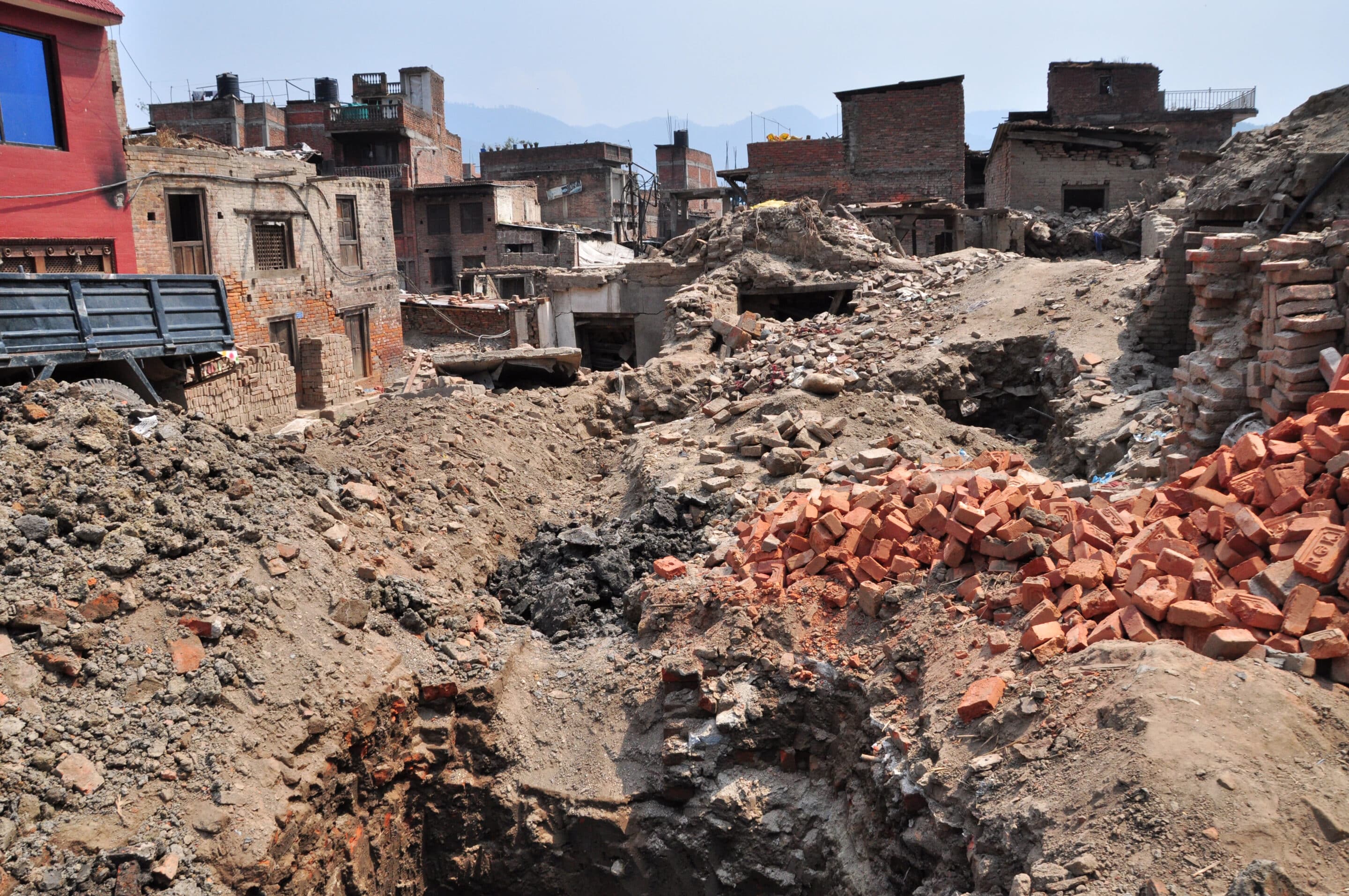
Bhaktapur city is 8 miles east of Kathmandu city. The smallest, yet most densely populated city in the country, Bhaktapur was once the capital of Nepal in the 12th and 13th century, making it rich in history with Newar tradition, cuisine and artisans.
Bhaktapur was also one of the hardest hit areas of the Nepal earthquake. More than 80 percent of the houses in the three major historic settlements in Kathmandu Valley (Kathmandu, Lalitpur and Bhaktapur) collapsed, leaving thousands homeless.
Mitra Path visited the Byasi community in Bhaktapur where 65 families were sheltered in temporary camps for over 2 years. Very few of them managed to rebuild their home, which worsened their economic situation over time. 25 women from this community came together with an idea to start a cooperative and start saving in order to open up businesses.

Bhaktapur, the “King of Curd”
Bhakaptar is famous for having the best yogurt in Nepal. It is the home of juju dhau (translates to “king of curd”) a special variety of yogurt beloved by the Nepalese for its rich taste and thick consistency. It is made by boiling buffalo milk, which is fattier than cow’s milk, and allowing it to ferment. The resulting yogurt is so creamy and thick that it doesn’t fall out even when the pot is upside down. Bhaktapur doesn’t have an industrialized yogurt manufacturing industry, juju dhau is still handmade by locals in the centuries-old tradition.
Juju Dhau has an integral role in Nepalese cuisine, religious rituals and special occasions. It is highly sought out domestically, as well as by tourists and in exports.
A Fresh Start
The women from Byasi community registered as an official agricultural women’s cooperative and four of these women decided to start a yogurt production business together. None of them owned a house or land or a workspace for their yogurt production. With some optimism and a small investment, however, they leased a piece of land, a small temporary shelter, and purchased two refrigerators.
The demand for their yogurt proved to be high, but the women did not have the financial means to expand their business to meet that demand or to compete in the market. They made a plan to establish a permanent shop that would serve as yogurt showroom and shop. They contacted a local non-profit (Jhigu Mitra) for support in constructing a workspace to make this plan a reality.
Jhigu Mitra partnered with Mitra Path during our visit to Kathmandu.

Tradition with Innovation
Bhaktapur locals who made this juju dhau often targeted their sales in cities like Kathmandu. But these women wanted to make their yogurt for local college students instead, making snack-size clay cups that they could easily pick up from a yogurt stand. Nem Bajra of Mitra Path was impressed by their entrepreneurial spirit, “These four women used Bhaktapur’s unique brand and positioning in juju dhau. Then they took something traditional and added their own innovation. All they needed was a space to sell. I thought, ‘These women have a bright future. They might become rich!’”

Funding for Sustainable Business
Mitra Path agreed to provide a grant to provide resources for skill-based training and building basic infrastructure so the women could expand their income generating activities and sustain their new livelihoods.


The estimates for construction, land leases, permits, engineering, building and utility installation were coordinated and executed by local non-profits and cooperatives.


Open for Business
The building construction is now complete. A local women’s cooperative helped install electricity, and the women entrepreneurs have now moved their delicious yogurt to the building for sale to the local students and community.
